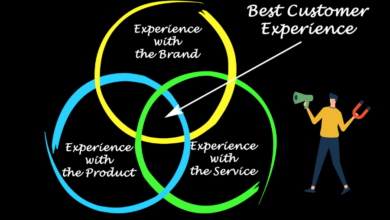Why You Can’t Afford to Go Cheap With Your Business Expenses
When you own a business, it’s only natural to save money wherever you can. Sometimes you can get the same product or service for far less money, and over time, every dollar you save adds up to something much larger.
However, there is a difference between saving money and being cheap. Here’s why a habit of going cheap with your business expenses can hurt you.
1. Cheap usually means low quality
You’ve probably heard the saying, “you get what you pay for,” and it’s true. If you don’t pay much for a product or service, it’s probably not going to be of high quality. It’s just logical. Cheap things don’t take much effort or resources to produce, and that’s why they’re inexpensive.
How many times have you used a pen from the dollar store? You can get a lot of pens for $1, but they aren’t great, and the ink dries out fast. The same is true for anything you buy for your business, whether it’s pens, paper, software, or computers – if you look for the cheapest bargain, you’ll get bargain-quality products.
2. Cheap products and services break down easily
The biggest problem with being a bargain hunter is that cheap products break down fast, and if they come with a warranty, it’s not going to cover much time. Companies that make poor-quality products tend to offer short-term warranties, and if you ask around, you’ll find that their products tend to break down not long after the warranty expires. It’s almost like they know how to time those warranties to avoid replacing the product.
Cheap products that break down are costly
One example of how buying cheap can backfire is when you own your building’s electrical transformer. If you buy a cheap, low-quality transformer that isn’t wrapped right and doesn’t have proper insulation, it’s probably going to break down within a few years. For businesses in the manufacturing industry, a blown transformer can put them out anywhere between $500,000 to $5 million per hour. A quality electrical transformer should last decades and should not randomly fail.
If you rely on any piece of equipment for your daily business activities, you can’t afford to go cheap. You should be investing in something top-of-the-line to ensure you never have to experience the catastrophic failure that can make your business go dark for a period of time.
3. Replacing products is a waste of time
At first, it might not seem like a big deal to replace cheap products when they wear out. For example, maybe you buy your employees $200 laptops and just recycle them after a couple years when they finally break down completely. It might seem like you’re getting a good deal on your cost per employee, but it’s costing you more than just money. It takes time to order new laptops and load them with company software to get them ready for new employees. Additionally, cheap laptops are usually frustrating to use and don’t support a good workflow. It makes more sense to buy high-quality laptops that can be used by employees for many years to come.
The same goes for products you sell. Just because you can find a manufacturer to produce something for next to nothing doesn’t mean you should work with them. Your business’ reputation will suffer if you sell cheap products. You’ll actually make more money by selling quality products and narrowing your target market to people willing to pay.
4. Cheap services kill productivity
All the software your team relies on to complete their work needs to be top quality. That doesn’t mean you have to buy the most expensive applications, but if you go cheap, productivity will drop. For example, if you have a large team using a free project management application, chances are, it’s not going to support a smooth workflow.
Likewise, if you’re avoiding getting a subscription with Slack because you don’t want to pay extra, you’re doing your team a disservice where communication is concerned. When everyone has to communicate through email, it’s a little harder to collaborate on projects. Slack makes collaboration simple, fast, and efficient in real-time.
If you want your team to be productive, you’ll have to pay a little more for the applications and digital tools that support productivity. Unfortunately, free applications don’t usually make the cut because they don’t generate the income necessary to continually be improved.
Put quality first
Orient yourself toward quality first, and then look at your options to see which high-quality products and services are more affordable. If you care about your business, saving money should never come at the expense of sacrificing quality.








